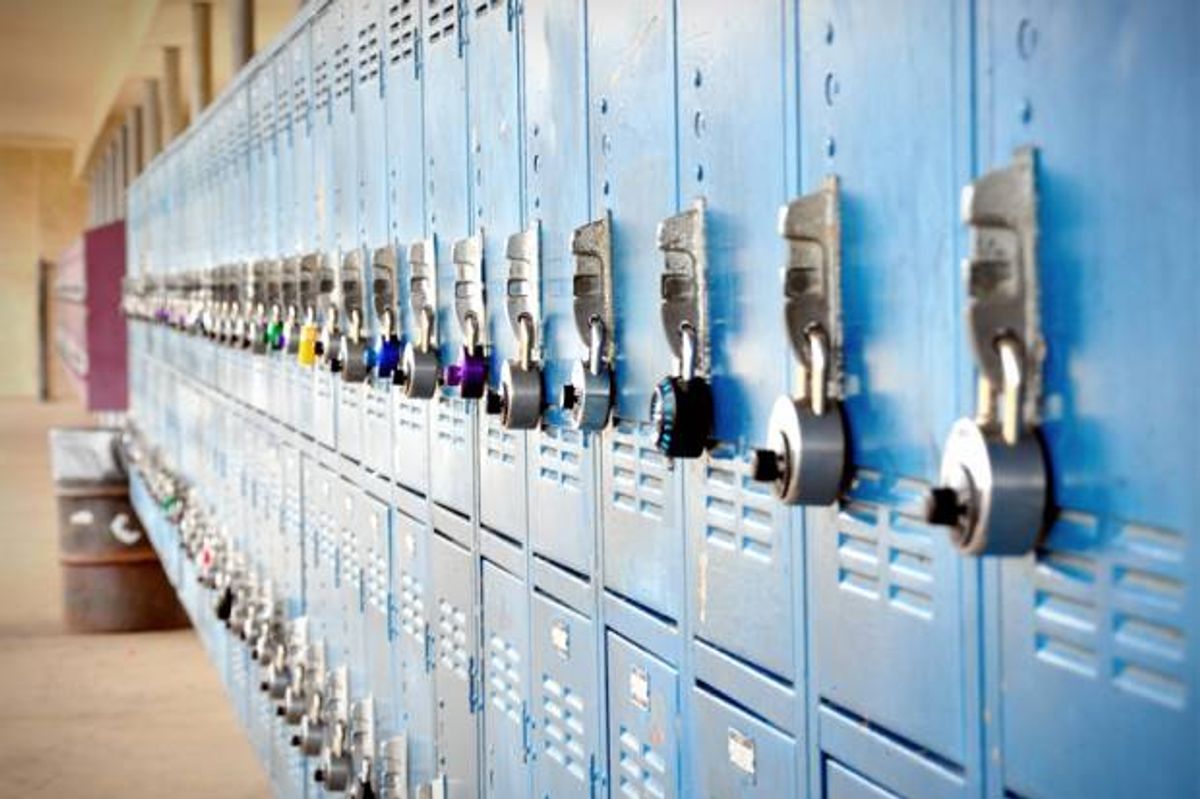Last year, two 12-year-old girls were caught writing on a bathroom wall at their Georgia middle school. Both were suspended for a few days. Both of the girls’ families were asked to pay a $100 fine so that the school would agree, according to one of the parents, to “move on past this.” But only one of them ended up facing misdemeanor trespassing charges. Only one of them spent the summer on probation. Only one of them was required to perform 16 hours of community service. Because only one of them was African-American and living in poverty.
Over at the New York Times today, Tanzina Vega has a report on that 12-year-old girl, Mikia Hutchings, and the heightened disciplinary and sometimes criminal penalties black girls and young girls of color face in school. The racial disparities in how girls are disciplined isn’t an isolated phenomenon in Henry County, either. It’s part of a national pattern that exposes another facet of the over-policing and criminalization of low-income young people of color.
But, as Vega points out, while there is something of a national conversation happening about the school to prison pipeline and young black boys, there is considerably less attention paid to the consequences of such a system for black girls.
From the Times:
In Georgia, the ratio of black girls receiving suspensions [between 2011 and 2012] compared with white girls was 5 to 1, and in Henry County, that ratio was 2.3 to 1, said J D Hardin, the spokesman for the county’s school district. And researchers say that within minority groups, darker-skinned girls are disciplined more harshly than light-skinned ones.
Mikia’s friend, who is white and whose family was able to pay the fine, was able to return to school without incident and without any interaction with the juvenile justice system. Mikia, like many other black girls, was not so fortunate. But the penalties Mikia faced were about more than just her family's inability to pay the fine.
Earlier this year, a report released by the United States Education Department found that public school officials suspend black students across age groups at a rate three times higher than that of white students, and that black girls are suspended at higher rates than other girls -- and most boys. The racial disparities in discipline impact black children as young as four and five.
“This critical report shows that racial disparities in school discipline policies are not only well documented among older students, but actually begin during preschool,” Attorney General Eric Holder said of the report. “Every data point represents a life impacted and a future potentially diverted or derailed. This administration is moving aggressively to disrupt the school-to-prison pipeline in order to ensure that all of our young people have equal educational opportunities.”
Michael Tafelski, the lawyer who represented Mikia in the disciplinary hearings, filed a complaint with the Justice Department regarding the case. “I’ve never had a white kid call me for representation in Henry County,” he told the Times. “What kid needs to be having a conversation with a lawyer about the right to remain silent? White kids don’t have those conversations; black kids do.”
As Mikia’s case is reviewed by the Justice Department, some educators are reviewing their own disciplinary policies to address these disparities. At the time the Education Department released its report on the expulsion of black students, one superintendent in Florida told the Times that his school was reviewing its reliance on a “zero-tolerance” approach to discipline.
“A knee-jerk reaction for minor offenses, suspending and expelling students, this is not the business we should be in,” said Robert Runcie. “We are not accepting that we need to have hundreds of students getting arrested and getting records that impact their lifelong chances to get a job, go into the military, get financial aid.”
Sakinah White, another Georgia mother who says her daughter was unfairly penalized in school, framed the issue in more direct terms. "It’s a form of child abuse,” she told the Times.

Shares